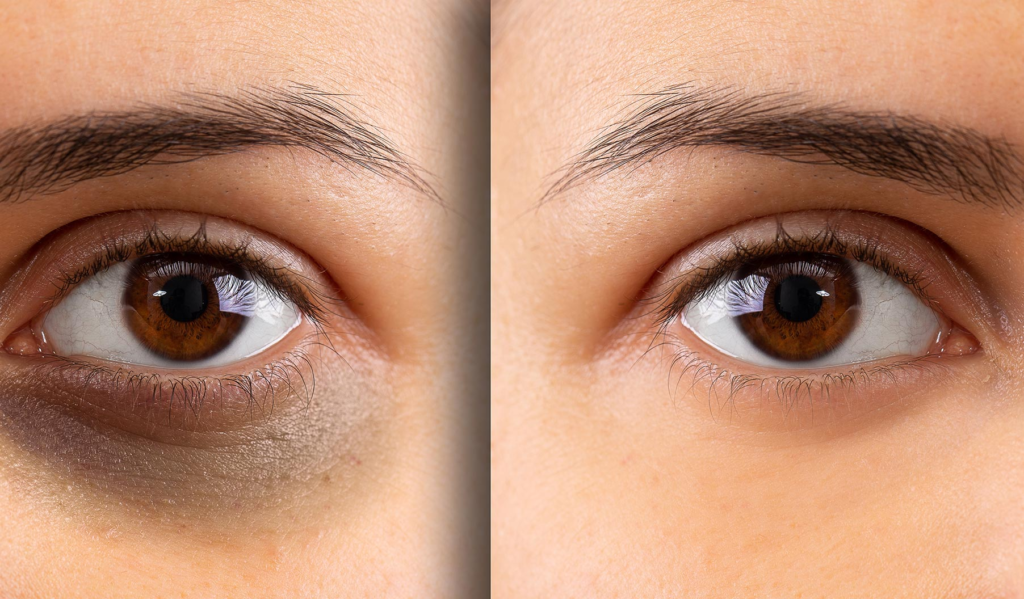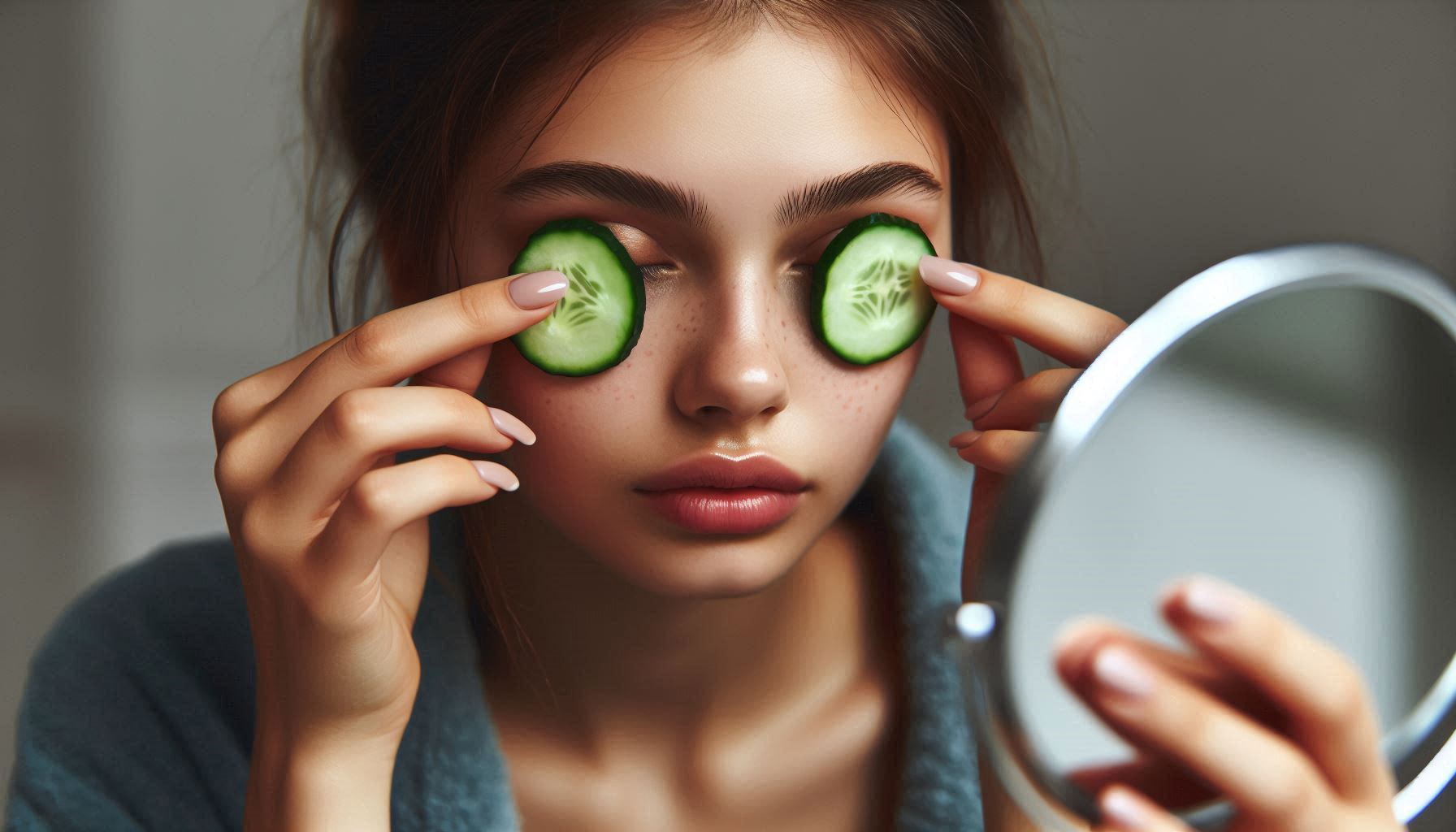Introduction
Dark circles under the eyes are a common concern for many people. These shadows can make you look tired, aged, and less vibrant, even if you feel well-rested and healthy. But what exactly causes dark circles, and more importantly, how can you get rid of them? This article will take you through everything you need to know about dark circles, from their causes to the best treatments available.
What Are Dark Circles?
Dark circles refer to the darkening of the skin under the eyes. This area, known as the periorbital region, is delicate and can easily show signs of stress, aging, and fatigue. Dark circles can vary in color from bluish to brownish, depending on your skin tone and the underlying cause.
Common Causes of Dark Circles
1. Lack of Sleep
One of the most common reasons for dark circles is insufficient sleep. When you don’t get enough rest, your skin can become pale, making the blood vessels beneath the skin more visible.
2. Genetics
If your parents have dark circles, you’re more likely to have them as well. Genetics play a significant role in how your skin behaves, including its tendency to develop dark circles.
3. Aging
As you age, your skin becomes thinner and loses fat and collagen, making the reddish-blue blood vessels under your eyes more prominent.
4. Allergies
Allergic reactions can cause your eyes to become itchy and swollen, leading to dark circles. Constant rubbing or scratching of the eyes can also aggravate the condition.
5. Dehydration
When your body is not well-hydrated, the skin under your eyes can look dull and sunken, leading to the appearance of dark circles.
6. Sun Exposure
Excessive sun exposure can cause your body to produce more melanin, the pigment that gives your skin color. This can make the area under your eyes darker.
7. Lifestyle Factors
Habits like smoking, alcohol consumption, and poor diet can contribute to the development of dark circles.
8. Medical Conditions
Certain medical conditions, such as anemia or thyroid problems, can cause dark circles as a symptom.

Types of Dark Circles
1. Vascular Dark Circles
These are caused by poor blood circulation, leading to bluish or purplish discoloration under the eyes.
2. Pigmented Dark Circles
These result from an overproduction of melanin, causing brown or blackish discoloration.
3. Structural Dark Circles
These are due to the shape of your face and the way light hits certain areas, creating shadows that look like dark circles.
How to Prevent Dark Circles
1. Get Enough Sleep
Aim for 7-9 hours of quality sleep each night to keep your skin looking fresh and vibrant.
2. Stay Hydrated
Drink plenty of water throughout the day to keep your skin hydrated and plump.
3. Wear Sunscreen
Always wear sunscreen, especially around your eyes, to prevent sun damage that can lead to dark circles.
4. Maintain a Healthy Diet
Eat a balanced diet rich in vitamins and minerals, particularly vitamin C and E, which are beneficial for skin health.
5. Manage Allergies
If you have allergies, take steps to manage them effectively to avoid the associated dark circles.
6. Avoid Rubbing Your Eyes
Constant rubbing can damage the delicate skin around your eyes, so try to avoid this habit.
Effective Treatments for Dark Circles
1. Topical Creams and Serums
There are many creams and serums on the market specifically designed to treat dark circles. Look for products containing ingredients like retinol, vitamin C, hyaluronic acid, and caffeine.
2. Cold Compress
Applying a cold compress can help reduce puffiness and shrink dilated blood vessels, making dark circles less visible.
3. Chemical Peels
Chemical peels can lighten dark pigmentation under the eyes by removing the top layer of skin.
4. Laser Therapy
Laser treatments can target pigmentation and increase collagen production, reducing the appearance of dark circles.
5. Fillers
In cases where dark circles are caused by volume loss under the eyes, dermal fillers can help restore a more youthful appearance.
6. Microneedling
Microneedling can stimulate collagen production and improve skin texture, reducing the appearance of dark circles.
7. Home Remedies
Simple home remedies like applying cucumber slices, cold tea bags, or almond oil can provide temporary relief from dark circles.
When to See a Doctor
If your dark circles persist despite trying various treatments, it may be time to consult a dermatologist. Dark circles can sometimes indicate an underlying health issue that requires medical attention.

The Psychological Impact of Dark Circles
Dark circles can affect your self-esteem and confidence. Many people feel self-conscious about their appearance and may even avoid social interactions because of it. Understanding that you’re not alone and that there are effective treatments available can help alleviate some of these concerns.
Common Myths About Dark Circles
1. Only Lack of Sleep Causes Dark Circles
While sleep deprivation is a common cause, many other factors can contribute to dark circles.
2. Dark Circles Are Permanent
With the right treatment, dark circles can be significantly reduced or even eliminated.
3. Only Older People Get Dark Circles
Dark circles can affect people of all ages, including children.
Conclusion
Dark circles are a common yet complex issue that can be caused by various factors, including genetics, lifestyle, and health conditions. While they can be frustrating, the good news is that there are many effective treatments available. By understanding the causes and implementing the right skincare routine, you can reduce or even eliminate dark circles, helping you look and feel your best.
FAQs
1. Can dark circles go away on their own?
Yes, in some cases, dark circles can fade over time, especially if they are caused by temporary factors like lack of sleep or dehydration.
2. Are dark circles a sign of a serious health issue?
While dark circles are usually harmless, they can sometimes indicate underlying health problems, such as anemia or thyroid issues.
3. How long does it take to see results from dark circle treatments?
The timeline varies depending on the treatment method used. Topical creams may take a few weeks, while procedures like laser therapy may show results more quickly.
4. Can makeup completely cover dark circles?
Yes, with the right concealer and technique, you can effectively cover dark circles for a flawless look.
5. Is there a permanent solution for dark circles?
Some treatments, like fillers or laser therapy, can offer long-lasting results, but maintenance may be required to keep dark circles at bay.
